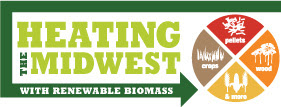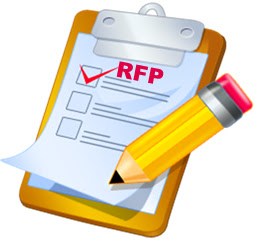We now enter our fourth year of activity for Heating the Midwest, capped off by a very successful Green Bay Conference and Expo. Attended by over 200 individuals and with 40 exhibitors, this event highlighted new biomass heating technologies and successful installations across the Midwest. Please see the links below to access the PowerPoint presentations that were presented during the event.
The combination of propane pricing uncertainty, upcoming fall crop drying, and this past winter’s heating bills has created new momentum for biomass thermal. We believe that the increasing heating prices and the dropping winter temperatures are also going to be urging homeowners to increase the efficiency of their heating in any way, this could be from the likes of HVAC maintenance completed by a company similar to these you can see at onehourmagic.com/heating/heating-repair/ for example, or even homeowners looking to cut their bills by searching for new utility providers. However, our current point? Let’s continue to share the message that biomass heating systems and fuels are more cost effective and also reliable, clean, and a job creator for the Midwest. On the flip side, if you’re looking for one of the best ways to keep your home cool in the blistering heat of the Summer, why not check out these portable air conditioner reviews over on the Coolest Gadgets website.
Enjoy this issue as it is packed with great information and events.
But first, if your business is looking for renewable sources of energy, it might be in your best interests to head to the Utility Bidder site to compare some of the different business energy options. Conducting a business energy comparison will help you find the right energy provider and source for your company, without the worry that you are getting a bad deal. For more information on how to compare, you can click here and go to businessmodulehub.com for help.
Regards,
Brian Brashaw
—
Presentations Posted from Successful 3rd Annual Heating the Midwest

Just under two months ago, 200 attendees gathered in Green Bay, WI, to hear the latest news, policies, and project developments in Midwestern biomass heating technologies and fuels.
The 3rd annual Heating the Midwest with Renewable Biomass conference featured engaging keynotes on opportunities for growing the biomass heating market and the reasons behind the recent spikes in fossil fuel heating prices. With the first day emphasizing technical items like reducing air emissions, case studies, and technology overviews, the second day featured state-by-state profiles of biomass thermal developments across the Midwest. All the presentations have been posted and are available here >>
We want to thank all the attendees, sponsors, exhibitors, and volunteers that made the 2014 conference a success. Planning has already begun for a 2015 event; if you’d like to participate in a future conference, please send an email to Brian Brashaw today.
More Information:
—
Biomass Energy Focus of Mid-July Illinois Renewable Energy Conference
 Biomass energy will serve a major role at the upcoming Illinois Renewable Energy Conference, July 16, 2014, in Normal, IL. The Illinois Biomass Working Group is co-hosting the conference, which will be keynoted by USDA Rural Business-Cooperative Service Administrator Lillian Salerno. Ms. Salerno will talk about USDA support for bioenergy and biobased products.
Biomass energy will serve a major role at the upcoming Illinois Renewable Energy Conference, July 16, 2014, in Normal, IL. The Illinois Biomass Working Group is co-hosting the conference, which will be keynoted by USDA Rural Business-Cooperative Service Administrator Lillian Salerno. Ms. Salerno will talk about USDA support for bioenergy and biobased products.
The event will also feature presentations on biomass heating system technology options and air quality, the Eastern Illinois University campus-scale biomass CHP project, and sustainable biomass feedstock production.
Plenary Speakers Include:
- Mel Nickerson, Illinois Energy Office, Illinois Department of Commerce and Economic Opportunity
- Barry Matchett, Environmental Law and Policy Center
- Lillian Salerno, USDA Rural Development
- Anthony Star, Illinois Power Agency
- Susan Hedman, Environmental Protection Agency Region 5
Key Event Information:
—
Numerous USDA Funding Opportunities for Biomass Thermal Businesses

The U.S. Department of Agriculture has announced funding for numerous Farm Bill programs that support the deployment of biomass fuels and technologies. Those programs and their deadlines are listed below.
- Repowering Assistance Program – Provides payments for biorefineries in existence on or before June 18, 2008 to replace fossil fuels used to produce heat or power with renewable biomass.
- Deadline – September 15
- Biomass Crop Assistance Program – Provides matching payments for the delivery of eligible material to qualified biomass conversion facilities by eligible material owners. Qualified biomass conversion facilities produce research, heat, power, biobased products, or advanced biofuels from biomass feedstocks.
- Deadline – July 14
- Advanced Biofuels Payment Program – Provides payments for the production of qualifying advanced biofuels. Solid forest-based biofuels qualify, though they receive discounted payment rates compared to other biofuels.
- Deadline – July 16 for first and second quarter payment requests
- Rural Energy for America Program – Provides grants and loans for rural-based and agricultural businesses to implement renewable energy or efficiency projects.
- Deadline – July 7 for grants, July 31 for loans
- View the recent BTEC webinar on the REAP 2014 and 2015 program here >>
—
Upcoming Minnesota RFP for Wood Heating Projects
 This July, the Minnesota Department of Agriculture (MDA) and the NextGen Energy Board are expected to release a Request for Proposals (RFP) for wood heating projects. While details are unavailable at this time, you’re encouraged to visit the MDA’s NextGen Energy Board Website to stay atop the program here >>
This July, the Minnesota Department of Agriculture (MDA) and the NextGen Energy Board are expected to release a Request for Proposals (RFP) for wood heating projects. While details are unavailable at this time, you’re encouraged to visit the MDA’s NextGen Energy Board Website to stay atop the program here >>
—
New Guide Offers Help for Sourcing Wood Heating Fuels
![]() According to the Biomass Energy Resource Center (BERC), the use of wood heating fuel in businesses, facilities, and residences is on the rise. As new biomass thermal projects pop up, so do a few major questions. In response to the growing level of interest, BERC has produced the report, “A Buyer’s Guide to Sourcing Wood Heating Fuel in the Northeastern U.S.”
According to the Biomass Energy Resource Center (BERC), the use of wood heating fuel in businesses, facilities, and residences is on the rise. As new biomass thermal projects pop up, so do a few major questions. In response to the growing level of interest, BERC has produced the report, “A Buyer’s Guide to Sourcing Wood Heating Fuel in the Northeastern U.S.”
The guide is a helpful resource for those considering a wood heating fuel system (including those in the Midwest). It provides an overview of the woodchip heating fuel market, answering frequently asked questions and providing actionable insights for anyone engaged in the biomass industry.
The guide outlines some key benefits of choosing woodchips as a fuel source:
- It’s less expensive. The cost of woodchip heating fuel is less than half that of oil and propane, ranging from $45 to $65 per green ton (2,000 pounds of un-dried biomass material). There are many variables that can affect the price, such as production costs, market strength, supply and demand levels, transport distance, and woodchip quality. Even when these factors are taken into account, the cost of wood heat is much less volatile than heating sources that are tied to the global fossil fuel market.
- It’s locally sourced. The majority of woodchips come from forests that are managed for maximum economic and ecological health. Forests cover three-quarters of Northern New England’s land area; they routinely produce more wood annually than is harvested. These forests also tend to contain a surplus of low-grade wood, which is ideal for woodchip production and, when harvested responsibly, can improve forest health.
- It’s a reliable energy source. The wood heating market is expected to grow considerably over the next ten years. The material is available and abundant, and logging and chipping contractors are increasingly investing in the necessary equipment to enter the woodchip heating market.
—
Reminder to Endorse the Midwest Vision for 2025
Beginning last April, we’ve requested your help in both endorsing and spreading the news on the Heating the Midwest Vision for 2025. The Vision details the positive economic impacts of transitioning the region from 3% renewable thermal energy to 15% by the year 2025 (as seen below).
Again, we’re inviting you to Endorse the Vision. Simply click the link below, sign up, and spread the news.
Key Findings and Conclusions of the Vision 2025 Report (access the full report here >>)
If achieved, this vision will:
- Achieve 15% of all thermal energy from renewables by 2025
- Reduce 1.01 billion gallons of propane and 278 million gallons of heating oil
- Reinvest $2.2 billion into the Midwest economy
- Create 13,170 jobs from the expansion of the thermal biomass industry and up to 210,000 direct, indirect and induced jobs from annual energy savings and the effects of no longer exporting heating fuel money from the region
- Supply 17.2 million green tons of sustainable woody and agricultural biomass for thermal energy and combined heat and power by 2025
- 12,630,950 homes and businesses are not connected to low-cost natural gas
- Improve air quality, reduce greenhouse gases, and enhance forest management
- Vitalize communities through rural economic opportunities, new industry and innovation
—
 Join the Heating the Midwest Team
Join the Heating the Midwest Team
Do you have a personal or professional interest in the growth of Midwestern biomass heating? Do you have an hour or two each month to talk with other leaders in the region?
Then send a short email to me, Brian Brashaw, and I’ll share with you the options for getting involved with our activities:
- Steering Committee
- Action Teams
- Developing presentations
- Conference planning
I hope you’re able to join us!
—
Call for Your Midwest Biomass Stories and Events in July’s Newsletter
As you’ve seen month after month, companies, governments, and communities around the Midwest are making progress on biomass heating and combined heat and power (CHP) programs and projects.
If you have a story or event to contribute for next month, please send the update to info@heatingthemidwest.org.
—
 Heating the Midwest Now on Twitter
Heating the Midwest Now on Twitter
Find Heating the Midwest and biomass heating news on twitter!
Join the conversation. Follow us here @HTM_BiomassHeat


